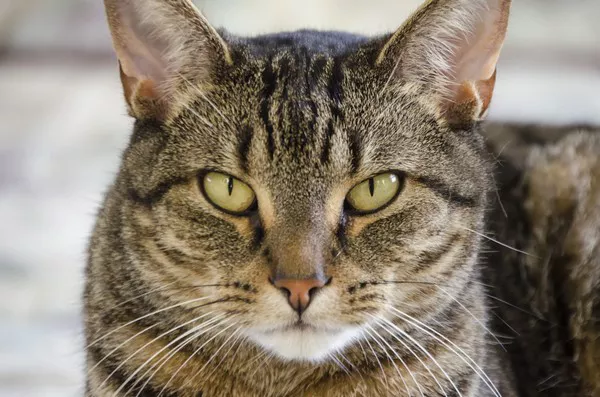As a pet owner, there are times when you may need to be away from home for business, travel, or other commitments. During these times, finding someone to care for your beloved feline can be a challenge. One option that many cat owners turn to is hiring a cat sitter, a professional or a trusted individual who provides care for your cat in the comfort of your own home. But the question remains: are cats okay with a cat sitter? This article explores the ins and outs of cat sitting, examining the benefits, potential concerns, and how to choose the right sitter for your cat’s needs.
Cat sitting is a personalized alternative to traditional cat boarding, which involves taking your cat to a boarding facility while you’re away. While some cats may thrive in a cat boarding facility, many owners prefer the option of a cat sitter as it allows their cat to remain in their familiar environment. But how do you ensure that the cat sitter you choose will provide the care and attention your cat requires, and how can you prepare your feline friend for a new person entering its space?
What Cat Sitting Involves
Cat sitting is a service where a professional caregiver comes to your home to look after your cat while you are away. Depending on your arrangement, the sitter may visit your home once or twice a day, or stay overnight. Their role is to ensure that your cat’s needs are met, from feeding and providing fresh water to cleaning the litter box and offering companionship. Some cat sitters may also provide additional services such as administering medication or caring for other pets in the household.
While cat sitting can involve basic care tasks, many cat sitters go beyond the essentials by offering personalized attention to each individual cat. This could include playtime, grooming, or simply sitting with the cat to provide comfort and companionship. The main goal of a cat sitter is to ensure that your cat feels safe and cared for while you’re away.
The Roles and Responsibilities of a Cat Sitter
The primary responsibility of a cat sitter is to care for the physical and emotional well-being of your cat. Some of the typical tasks include:
Feeding and Watering: Providing meals according to your cat’s dietary preferences and schedule, as well as ensuring fresh water is always available.
Litter Box Maintenance: Keeping the litter box clean and ensuring it is changed regularly.
Play and Interaction: Offering playtime or companionship, which is particularly important for indoor cats who may otherwise feel lonely or bored.
Administering Medication: If your cat is on medication, a professional sitter can administer it as required.
Providing Comfort: Many cats are social creatures that require affection and attention, and a cat sitter’s role is to offer reassurance and companionship while you’re away.
Some sitters may also check the general condition of the home, such as ensuring there is no damage, keeping an eye on plants or mail, and offering other services that align with the pet’s needs.
Benefits of Using a Cat Sitter
When you are unable to care for your cat, a cat sitter can provide several advantages over traditional cat boarding. The following are key benefits of using a cat sitter:
Familiar Environment
One of the most significant benefits of hiring a cat sitter is that your cat can remain in its familiar environment. Cats are territorial animals and often feel stressed or anxious when taken out of their home. This is especially true for cats who are used to their own space and routines. With a cat sitter, your cat can stay in its own home where it feels safest, reducing the likelihood of anxiety or behavioral changes.
The home environment also allows your cat to maintain familiar smells and surroundings, which is crucial for its comfort. Many cats experience a high level of stress in unfamiliar environments, such as a cat boarding facility, which can impact their eating, sleeping, and overall well-being.
Personalized Care
Cat sitters are able to provide personalized care based on your cat’s specific needs. Whether your cat has dietary preferences, requires medication, or enjoys certain types of play, a professional sitter will be able to cater to these individual needs. This is an advantage over cat boarding, where the staff may have to care for multiple animals at once, making it more difficult to provide the level of individualized attention a sitter can offer.
Moreover, if your cat is shy or has behavioral quirks, a sitter can adapt to these personality traits and offer care that respects your cat’s unique temperament.
Routine Maintenance
Cats thrive on routine. By hiring a cat sitter, your cat’s daily routine remains undisturbed. This includes feeding schedules, playtime, and litter box cleaning. Sticking to the usual routine helps your cat feel secure and reduces stress.
Maintaining a routine is especially important for older cats or cats with health concerns. A consistent routine helps ensure that your cat’s needs are met in a way that is familiar and comforting.
Potential Concerns
While there are many benefits to using a cat sitter, there are also some concerns that owners should consider before hiring one. Understanding these potential issues will help you make an informed decision when choosing a sitter for your cat.
Stranger Anxiety
Not all cats are comfortable with strangers. If your cat is not used to having new people in the home, it may initially be fearful or shy when meeting a cat sitter. This anxiety can lead to hiding, reluctance to eat, or changes in behavior, such as excessive meowing or aggression. Some cats may take longer to warm up to a new person, and it can be stressful for both the cat and the sitter.
To help mitigate this, it’s important to allow your cat to become familiar with the sitter before your departure. Having a trial visit, where the sitter comes over to meet your cat and spend some time with them, can help your cat adjust to the new presence in its space.
Quality of Care
The quality of care provided by a cat sitter is crucial. You need to ensure that the sitter you choose is reliable, trustworthy, and experienced with cats. Cats have specific needs that require knowledge and attention. For instance, if your cat is on a special diet or needs medication, you need to be confident that the sitter will follow these instructions accurately.
While many sitters are experienced professionals, others may be relatively new to the job. Always ask for references, check credentials, and assess their experience with cats. If you feel uncomfortable with a potential sitter, it’s better to find someone else who will provide the level of care your cat deserves.
Choosing the Right Cat Sitter
Selecting the right cat sitter is essential for ensuring your cat is cared for properly while you’re away. Here are some important factors to consider when choosing a sitter:
Credentials and Experience
Look for a cat sitter who has experience working with cats. Ideally, the sitter should have a background in pet care or have references from previous clients. A good sitter will be knowledgeable about feline behavior, health, and common issues like feeding schedules and litter box maintenance.
Interview Process
Interviewing potential sitters is important to ensure they are a good fit for your cat’s needs. Some questions to ask include:
- What is your experience with cats?
- Are you comfortable administering medication if necessary?
- How do you handle anxious or fearful cats?
- Do you have any references from previous clients?
- What is your approach to handling emergency situations?
Trial Visits
Before committing to a cat sitter for an extended stay, arrange a trial visit where the sitter can come over and meet your cat. This gives both the sitter and the cat the chance to become acquainted. It’s also a good time to show the sitter the location of essential items like food, water, and litter boxes.
Preparing for the Cat Sitter
Once you’ve chosen the right cat sitter, it’s time to prepare your home and your cat for their stay. Proper preparation ensures that your cat sitter has everything they need to care for your pet.
Detailed Instructions
Provide the sitter with detailed instructions on your cat’s care routine, including feeding schedules, medication needs, and any specific preferences. You should also include information about your cat’s behavior, including likes and dislikes, and any special care requirements such as medical conditions or grooming routines.
Emergency Contacts
Ensure that the sitter has access to emergency contact information, including your vet’s phone number, any nearby emergency animal hospitals, and your own contact details. This is essential in case something goes wrong or if your cat experiences a health issue.
Familiarization
Allow the sitter to spend some time with your cat before the extended stay. This helps your cat feel more comfortable with the sitter and reduces anxiety. It also provides an opportunity for the sitter to observe your cat’s behavior and get to know its preferences.
Monitoring and Feedback
Once your cat sitter is caring for your cat, it’s important to stay in touch to ensure everything is going smoothly.
Regular Updates
Request regular updates from the sitter. This can include daily check-ins via text, phone, or email, as well as photos of your cat to keep you reassured. Some sitters even provide detailed reports about the cat’s eating habits, behavior, and any changes they observe.
Post-Sitting Assessment
After the cat sitter leaves, observe your cat’s behavior. Does it seem comfortable and well-cared for? Any signs of stress or changes in behavior may indicate that the experience was not as positive as hoped. On the other hand, a relaxed and content cat is a good sign that the sitter provided the care it needed.
Conclusion
While the idea of a stranger coming into your home to care for your cat may initially cause some concerns, many cats do quite well with a cat sitter. The familiar environment, personalized care, and maintenance of routine can make a big difference in reducing stress for your feline companion. By carefully selecting a reliable and experienced sitter, preparing your cat and home for the sitter’s arrival, and staying in touch while you’re away, you can ensure that your cat is safe, happy, and well cared for during your absence. Whether you’re opting for cat boarding or a cat sitter, what’s most important is that your cat’s needs are met with love and care.
Related Topics



























